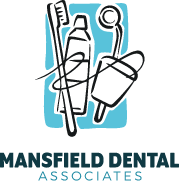Bruxism can cause you to suffer regular pain in your head, neck, and face. It can also damage your teeth. This regular, often unconscious grinding of your teeth can drag down your general well-being, and if left untreated it can cause serious dental problems. Because teeth grinding can be most frequent when you sleep, it can even affect your ability to enjoy a night’s rest. If you are worried that you might be grinding your teeth, you should meet with your dentist to discuss the treatments available to you.
Bruxism And Your Oral Health
Your jaw can generate significant pressure when you bite down. That force can cause serious problems for your teeth and jaw joints. Bruxism can lead to TMD dysfunction, which causes painful problems with your jaws, and uncomfortable jaw movement. Bruxism can also damage your teeth, and cause them to move out of alignment. Prolonged bruxism can even put you at risk of losing your teeth.
Bruxism And Sleep
Because many sufferers of bruxism primarily grind their teeth while they sleep, they may not be aware that it is happening. If you routinely wake up with headaches, sore teeth and facial muscles, or neck stiffness, you may be grinding your teeth at night. Bruxism can inhibit your ability to fully rest, and cause health problems related to lack of sleep.
Treating Bruxism
Your dentist can check for evidence of bruxism during a routine checkup, but if you think you are suffering from bruxism you should not delay a visit. Your dentist can address it, as well as any damage it has already inflicted. If teeth grinding has led to your teeth looking worn or misshapen, you may benefit from porcelain veneers. Veneers can hide these flaws, and give you the appearance of a healthy, attractive smile.





Recent Comments